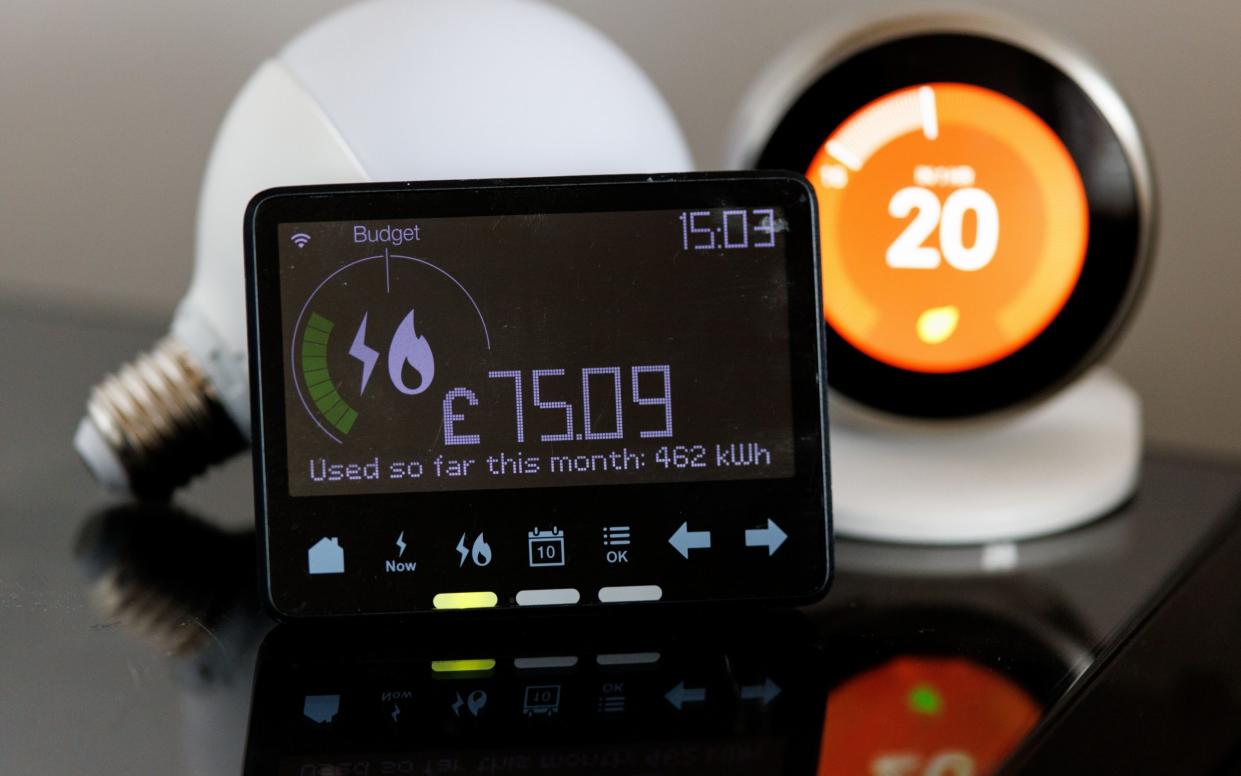Why fixing your energy bill could leave you £200 worse off

Households that fix their energy bill to save money now could be more than £200 worse off by the end of the year, analysis shows.
Energy companies are offering customers the chance to fix their bills amid fluctuating costs, but experts have warned that billpayers could lose out if prices continue to fall as expected.
End Fuel Poverty Coalition, a charity, said none of the fixes on offer would save a customer money if forecasts for the energy price cap proved correct.
The most expensive of these was the EDF Essentials two-year fix, which costs £1,849 a year for a typical household – but would leave billpayers £218 worse off, based on current forecasts.
British Gas’s price promise tariff was announced a week before Ofgem confirmed rates for April, boasting a £229 saving on the January price cap.

The provider said that should the cap fall in April as predicted, the tariff would drop to “beat it” by £2 a year.
But End Fuel Poverty Coalition’s analysis found that customers could still be £106 worse off by the end of the year under Cornwall Insight price cap predictions.
Other providers promised cheaper rates, but only if customers opted for “bundle” packages.
Utility Warehouse’s Fixed Saver 14, for example, works out as £100 cheaper than the April price cap.
But customers must also sign up for two other services offered by the provider – such as mobile and broadband.
Even this was found to be £28 more expensive than predicted costs for the rest of the year, End Fuel Poverty Coalition said.
Ofgem announced on Friday that the price cap, which limits the amount a provider can bill customers for their energy use, will fall by 12pc.
It means a typical household will pay £422.50 for their energy between April and June.
Analysts Cornwall Insight predict that the cap will fall again in July to £1,462, before rising to £1,521 in October.
Based on these forecasts, the End Fuel Poverty Coalition said a typical household would pay £365.75 for their power use between July and September, and £380.25 in the last three months of the year.
Before the energy crisis, shopping around for competitive fixed-price deals was a common way to save money on energy.
When the war in Ukraine upended the market, variable rates governed by the price cap became the only viable option. Fixed rates became so expensive that providers stopped offering them altogether.
However, as wholesale prices have cooled, fixed-rate deals have returned after years of being unavailable. There are 21 fixed-rate deals on offer across various providers, according to comparison site Uswitch.
But of these, only a handful offered rates cheaper than the April price cap, and none were cheaper than price predictions later in the year.
Consumer champion Martyn James urged billpayers to be cautious when approaching fixed rate deals, especially if they were being pushed in the runup to regulator announcements.
Mr James said: “The current price fixing deals from energy firms are in many cases being aggressively marketed, just in time for the widely predicted drop in the energy price cap.”
“As with any tempting offer, you must ask yourself: what’s in it for the business?
“Fixing an energy deal works for businesses in one or two ways. In one sense, they have a guaranteed income from some customers for a set period.
“But the main reason is they are gambling that prices will fluctuate in a way that will mean they’ll make more money from price drops long-term – and when gambling, the house tends to win.”
Mr James said households should only consider switching if they were cautious by nature and were willing to overpay if wholesale prices dropped later in the year.
He added: “Always check the small print, as there’s a hefty price for walking through the exit door.”
Of the 17 deals offered by major providers, 15 charged exit fees if customers cut out early. Households using gas and electricity are typically charged £150 if they switch before the end of the deal, however, charges could go as high as £400 for longer-term fixes.
Recommended
Nine (completely free) ways to save money on your energy bills
Uswitch’s energy expert Will Owen said: “It is important that consumers look at the fine print of any tariff they are considering to understand what they are signing up to. It is always worthwhile comparing tariffs with other deals to check if it is right for your circumstances.”
Scottish Power said customers would not be charged an exit fee if they switched to a standard variable tariff with the provider. A spokesman added: “Customers are provided with clear pricing information regarding available tariffs so they can choose the option that works best for them.”
Octopus Energy does not charge exit fees. After Ofgem’s announcement, the provider lowered the price of its fixed tariff to be £5 cheaper than the April price cap. A spokesman said: “Assuming Cornwall Insight is correct and the next price cap is lower, they will be able to switch to another Octopus tariff or supplier with no penalties.”
A Utility Warehouse spokesman said: “We are transparent with pricing for our customers. We recognise the cap is subject to fluctuations and our fixed tariffs give customers price certainty against any future price rises.”
British Gas, E.On, Ovo, and EDF were approached for comment.

